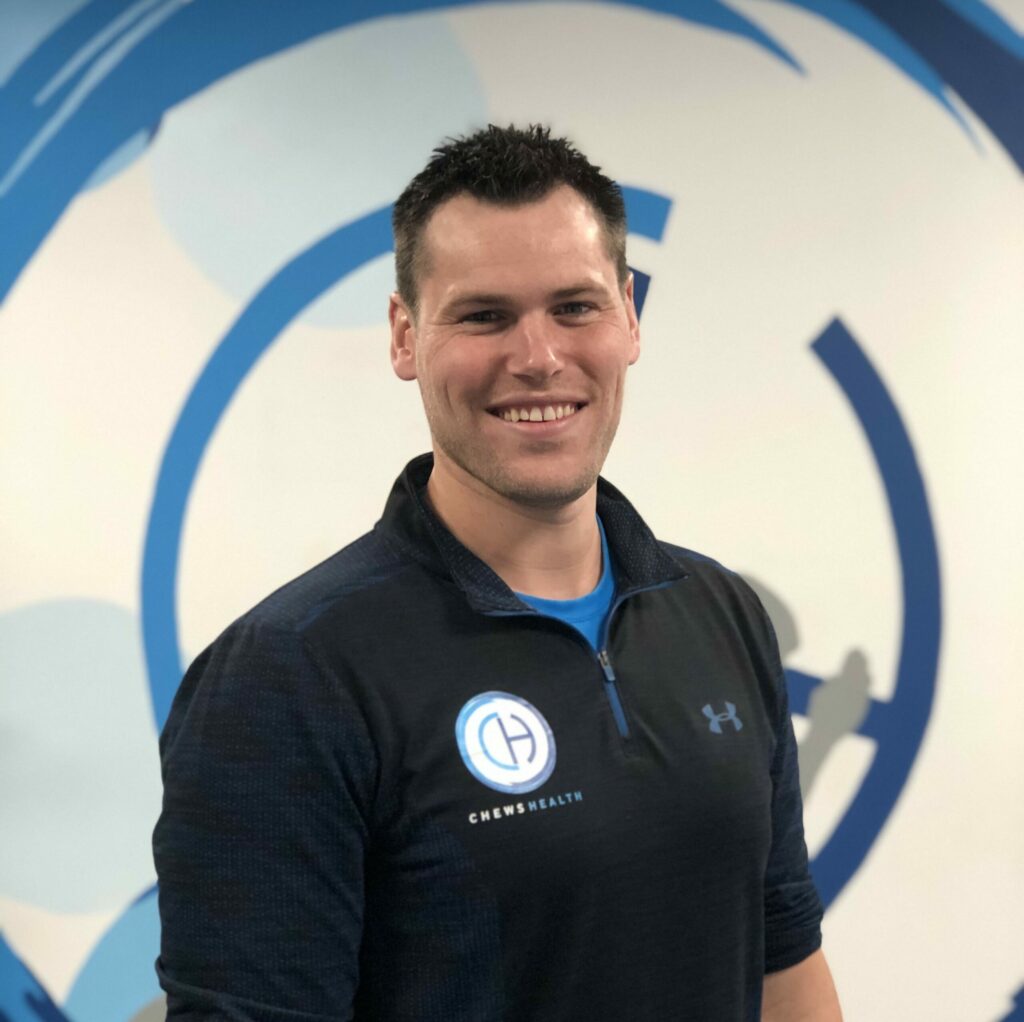Greater Trochanteric Pain Syndrome (GTPS)
Greater Trochanteric Pain Syndrome (GTPS)
Greater Trochanteric Pain Syndrome (GTPS) is a condition characterised by pain at the outside of the hip. It’s often associated with tenderness over the greater trochanter, the prominent bony part at the side of the hip.
The pain can be caused by a variety of underlying issues, such as inflammation of the bursa (bursitis), tendinopathy, or muscle tears near the greater trochanter. It’s a common cause of lateral hip pain and can be aggravated by lying on the affected side, walking, or other hip movements.
What conditions are associated to GTPS?
Outside hip pain, also known as lateral hip pain, can be caused by several conditions in addition to Greater Trochanteric Pain Syndrome (GTPS). Some of these conditions include:
- Iliotibial Band Syndrome (ITBS): Inflammation or tightness of the iliotibial band, which runs along the outside of the thigh.
- Hip Arthritis: Degenerative changes in the hip joint can cause pain in various locations, including the outside of the hip.
- Hip Fractures or Stress Fractures: Particularly in older individuals or athletes.
- Meralgia Paresthetica: Compression of a sensory nerve near the hip, leading to pain, numbness, or tingling.
- Lumbar Spine Conditions: Problems in the lower back can sometimes refer pain to the hip area.
- Tendinitis or Muscle Strains: Inflammation or injury to the muscles and tendons around the hip.
- Bursitis: In addition to the trochanteric bursa, inflammation of other bursae around the hip can cause pain.
- Tumour or Infection: Though rare, these can present with hip pain.
- Referred Pain from Pelvic Organs: Conditions affecting internal organs such as the ovaries or appendix might sometimes manifest as hip pain.
These conditions may have different underlying causes, symptoms, and treatments. Accurate diagnosis typically requires a comprehensive clinical evaluation, possibly including physical examination, medical history, and imaging studies. The treatment would be tailored according to the specific diagnosis.
What are the symptoms of GTPS?
The symptoms of Greater Trochanteric Pain Syndrome (GTPS) include chronic pain and tenderness at the outside of the hip, often aggravated by lying on the affected side, walking, or other hip movements.
What causes GTPS?
Greater Trochanteric Pain Syndrome (GTPS) is caused by inflammation and irritation of the bursa, tendons, and other soft tissues around the greater trochanter, the bony prominence at the outside of the hip. This can result from repetitive motions, acute injury, excessive pressure on the hip, underlying hip conditions, or a combination of these factors.
What is the best treatment for GTPS?
The best treatment for Greater Trochanteric Pain Syndrome (GTPS) typically involves a combination of conservative measures tailored to the individual’s specific symptoms and underlying causes. Common treatments include:
- Physiotherapy: Focusing on stretching and strengthening exercises for the hip and surrounding muscles.
- Lifestyle Modifications: Such as weight loss if necessary and avoidance of activities that exacerbate the pain.
- Shockwave therapy
- Corticosteroid Injections: In some cases, to alleviate inflammation.
Who should I see to fix GTPS?
To help fix Greater Trochanteric Pain Syndrome (GTPS), a physiotherapist, orthopaedic specialist would typically be involved in assessing and treating the condition through a combination of therapies and interventions.
Is exercise good for GTPS?
Yes, exercise is generally beneficial for Greater Trochanteric Pain Syndrome (GTPS) when done correctly. Specific stretching and strengthening exercises can help alleviate symptoms by improving flexibility, building muscle strength around the hip, and promoting overall joint health. Exercise is usually a key component of a comprehensive treatment plan for GTPS.
Will I need surgery for GTPS?
Surgery for Greater Trochanteric Pain Syndrome (GTPS) is generally considered only when conservative treatments fail, and the decision should be made with an orthopaedic specialist, weighing potential benefits and risks.
Chews Health top tip for GTPS
Our Specialists
 Melanie Clarke2023-02-22We’ll be forever grateful to Chews, the guys are the absolute BEST IN CLASS when it comes to a fully tailored recovery plan. Our son is a young elite competitive acrobatic gymnast who sadly had a high impact fall at gymnastics dislocating and fracturing his elbow and needed surgery, for a gymnast that trains many hours over 4 days week it was devastating blow, especially with GB competitions coming up. Once out of cast (wk 4 post opp) we started 2 x weekly physio sessions with Richard Saxton (who specialises in child’s physio), he was thorough, diligent and his amazing assessments fully supported the coaches at our sons gym to help build a safe recovery plan. The sessions with Richard and Sanford were fun, engaging and they took great care to help improve full mobility and strength. At week 7 post op our son was doing skills we thought would have taken 4mths to achieve, by week 10 he was back to full impact training, even our hospital follow up with the senior elbow consultant was blown away by the physio support we’d had and the rapid recovery. If it wasn’t for Chews we 100% would not be back training this quickly and not have had the reassurances it was safe to do so…..we’ve definitely found a physio for life. Thank you from the bottom of our hearts Team Chews. From Mel & JJ x x
Melanie Clarke2023-02-22We’ll be forever grateful to Chews, the guys are the absolute BEST IN CLASS when it comes to a fully tailored recovery plan. Our son is a young elite competitive acrobatic gymnast who sadly had a high impact fall at gymnastics dislocating and fracturing his elbow and needed surgery, for a gymnast that trains many hours over 4 days week it was devastating blow, especially with GB competitions coming up. Once out of cast (wk 4 post opp) we started 2 x weekly physio sessions with Richard Saxton (who specialises in child’s physio), he was thorough, diligent and his amazing assessments fully supported the coaches at our sons gym to help build a safe recovery plan. The sessions with Richard and Sanford were fun, engaging and they took great care to help improve full mobility and strength. At week 7 post op our son was doing skills we thought would have taken 4mths to achieve, by week 10 he was back to full impact training, even our hospital follow up with the senior elbow consultant was blown away by the physio support we’d had and the rapid recovery. If it wasn’t for Chews we 100% would not be back training this quickly and not have had the reassurances it was safe to do so…..we’ve definitely found a physio for life. Thank you from the bottom of our hearts Team Chews. From Mel & JJ x x Ruth Shearn2023-02-21Have waited a few months post-treatment to write a review - just to be certain! Quite simply, I can't recommend these guys highly enough. I went to them with two badly damaged knees (miniscus tears). Having had three arthroscopes over the years, I was completely resigned to needing surgical intervention again. The Chews team had different ideas. After showing me the latest research findings, they assured me my knees could be rehabilitated without a scalpel. I had just a handful of sessions with them and am delighted to report that, six months on, my knees are great! I'm running 5k twice a week (don't laugh, I loathe running and am no spring chicken) without any pain and have taken up tennis. Everyone at Chews is passionate about their subject, knowledgeable, reassuring and friendly. I wouldn't go anywhere else.
Ruth Shearn2023-02-21Have waited a few months post-treatment to write a review - just to be certain! Quite simply, I can't recommend these guys highly enough. I went to them with two badly damaged knees (miniscus tears). Having had three arthroscopes over the years, I was completely resigned to needing surgical intervention again. The Chews team had different ideas. After showing me the latest research findings, they assured me my knees could be rehabilitated without a scalpel. I had just a handful of sessions with them and am delighted to report that, six months on, my knees are great! I'm running 5k twice a week (don't laugh, I loathe running and am no spring chicken) without any pain and have taken up tennis. Everyone at Chews is passionate about their subject, knowledgeable, reassuring and friendly. I wouldn't go anywhere else. Dave Stuart2023-02-06I have had a chronic back condition to varying degrees for many years which more recently has forced me to have weeks off work at a time. I was recommended Chews Health by a colleague having tried other physios in the past. However, I always felt that something was missing from the plan. My back muscles would on occasion go into spasm, or my disk to impinge on my nerve, affecting my mobility and effectively setting me back to square one. I came to Chews health a bit wary and was considering surgery due to how much my back was affecting my quality of life and mental health. It has not been a straight forward recovery, but i have made significant progress through having a thorough history taken, my ongoing concerns listened to, and being provided with a clear explanation of not only the exercise plan but additionally explaining why my body was responding in varying ways. This has educated about my condition and provided me with the tools to self manage my condition more effectively should it deteriorate again.. It has not been plain sailing, but I have absolute faith in Jack and his team.
Dave Stuart2023-02-06I have had a chronic back condition to varying degrees for many years which more recently has forced me to have weeks off work at a time. I was recommended Chews Health by a colleague having tried other physios in the past. However, I always felt that something was missing from the plan. My back muscles would on occasion go into spasm, or my disk to impinge on my nerve, affecting my mobility and effectively setting me back to square one. I came to Chews health a bit wary and was considering surgery due to how much my back was affecting my quality of life and mental health. It has not been a straight forward recovery, but i have made significant progress through having a thorough history taken, my ongoing concerns listened to, and being provided with a clear explanation of not only the exercise plan but additionally explaining why my body was responding in varying ways. This has educated about my condition and provided me with the tools to self manage my condition more effectively should it deteriorate again.. It has not been plain sailing, but I have absolute faith in Jack and his team. lobo2023-01-09I had to attend Chews Health for help with pain in my elbow and they have been a fantastic help. I am now back to 100%.
lobo2023-01-09I had to attend Chews Health for help with pain in my elbow and they have been a fantastic help. I am now back to 100%. The S2023-01-05I can thoroughly recommend Chews Health physio. Sessions from diagnosis to rehabilitation are stimulating as well as therapeutic. Jack’s holistic, insightful approach goes beyond fixing the initial problem - he builds the confidence and self-knowledge to help maintain fitness and avoid strains and niggling injuries in the future. His message that the body needs exposure to regular challenges has inspired my journey towards optimum health.
The S2023-01-05I can thoroughly recommend Chews Health physio. Sessions from diagnosis to rehabilitation are stimulating as well as therapeutic. Jack’s holistic, insightful approach goes beyond fixing the initial problem - he builds the confidence and self-knowledge to help maintain fitness and avoid strains and niggling injuries in the future. His message that the body needs exposure to regular challenges has inspired my journey towards optimum health. Sam Butler2022-12-21Excellent physiotherapy. After ACL and meniscus surgery I contacted Chews Health to find out about how they could help me feel more confident about returning to more intense sport after my injury. I felt listened to and we worked on a series of different of exercises that tested my knee. Very helpful and I now feel much more confident in my abilities.
Sam Butler2022-12-21Excellent physiotherapy. After ACL and meniscus surgery I contacted Chews Health to find out about how they could help me feel more confident about returning to more intense sport after my injury. I felt listened to and we worked on a series of different of exercises that tested my knee. Very helpful and I now feel much more confident in my abilities. feralie Bennett2022-11-23I saw Richard Saxton for a chronic pain in my achillies. 2 visits, with massage and exercises: clear concise instruction, both written and verbal to do at home were realistic & adapted for my ability - I now no longer require pain relief & can walk the dogs pain free & even manage a few hills. A follow up call to review my progress was also appreciated. The clinic was clean & well equipped. Would highly recommend.
feralie Bennett2022-11-23I saw Richard Saxton for a chronic pain in my achillies. 2 visits, with massage and exercises: clear concise instruction, both written and verbal to do at home were realistic & adapted for my ability - I now no longer require pain relief & can walk the dogs pain free & even manage a few hills. A follow up call to review my progress was also appreciated. The clinic was clean & well equipped. Would highly recommend. Philip Conroy2022-11-16When I had severe back pain I was seen within 24 hours. The problem was resolved after 3 weeks of physiotherapy and exercises. I subsequently took up the annual gym membership package which includes regular reviews by the Physiotherapists. I feel this has benefitted me greatly as I had no previous experience of gyms and ensured I was using the equipment in the correct manner. At all times the staff have been very friendly and professional.
Philip Conroy2022-11-16When I had severe back pain I was seen within 24 hours. The problem was resolved after 3 weeks of physiotherapy and exercises. I subsequently took up the annual gym membership package which includes regular reviews by the Physiotherapists. I feel this has benefitted me greatly as I had no previous experience of gyms and ensured I was using the equipment in the correct manner. At all times the staff have been very friendly and professional. Maureen Morris2022-11-10Helped me tremendously. Lovely people - everyone very very supportive.
Maureen Morris2022-11-10Helped me tremendously. Lovely people - everyone very very supportive. Cecilia Wright2022-10-31I had been suffering from plantar fasciitis for some months and went Chews Health in the summer for shockwave treatment, after my podiatrist said she had heard good reports about it. Until then I had been resting, exercising it, icing it, using insoles etc., none of which had made much difference. I booked six treatments at the start (recommended) and by the time of the last treatment It was hardly noticeable, so much better! I’ve had two further treatments over the last month, just to be on the safe side, and I’m doing some exercises now to build up the strength in my calf and foot. Chews Health comes with heartfelt recommendations from me, they are friendly, very knowledgeable and best of all - they have fixed my sore foot!Google rating score: 5.0 of 5, based on 58 reviews
Cecilia Wright2022-10-31I had been suffering from plantar fasciitis for some months and went Chews Health in the summer for shockwave treatment, after my podiatrist said she had heard good reports about it. Until then I had been resting, exercising it, icing it, using insoles etc., none of which had made much difference. I booked six treatments at the start (recommended) and by the time of the last treatment It was hardly noticeable, so much better! I’ve had two further treatments over the last month, just to be on the safe side, and I’m doing some exercises now to build up the strength in my calf and foot. Chews Health comes with heartfelt recommendations from me, they are friendly, very knowledgeable and best of all - they have fixed my sore foot!Google rating score: 5.0 of 5, based on 58 reviews


